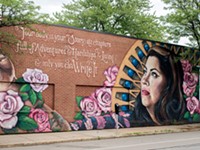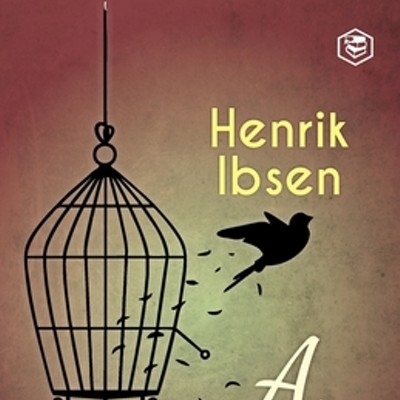[
{
"name": "500x250 Ad",
"insertPoint": "5",
"component": "15667920",
"parentWrapperClass": "",
"requiredCountToDisplay": "1"
}
]
Aided by August's scorching heat, the sienna- and iodine-colored images of dismembered fetuses seem to sear into the sidewalk in the 100 block of University Avenue. Anti-abortion advocates, some carrying signs, others holding religious objects like crucifixes and rosary beads stand on both sides of the entrance to Planned Parenthood's Rochester office.
When a blue pickup truck pulls out of the lot, a protestor yells at the driver and passenger, "If you had an abortion, you just murdered your baby." The startled driver says that they were only there for a medical exam and birth control.
"From people who kill babies?" the protester says. "Why would you go to a place that kills babies for that?"
Such exchanges — and much worse — are common outside Planned Parenthood's facility. Almost every week, regardless of the weather or the time of year, as many as a dozen anti-abortion advocates gather at the facility's borders to protest.
Officials at Planned Parenthood say that they are used to the demonstrations. But it's not just the facility and its clients that are affected. Neighbors, including some residents of the pricey Grove Place neighborhood, have to live with the demonstrations taking place right outside their doorways.
The protests are also just blocks away from the YMCA and the Eastman School of Music. Customers of businesses from University Avenue to East Main Street regularly pass by the sometimes-volatile scene. Even children, teachers, and parents from School 58, one of the city district's most popular schools, were, until recently, at risk of viewing the disturbing photos. (The school is undergoing construction and is currently vacant.)
Attitudes toward the anti-abortion protesters from nearby residents and business owners range from extreme anger to indifference. Some say that they are exhausted by the protesters and don't want to rile them.
One resident who has lived in the Grove Place neighborhood for several years says she's fearful that she might hit one of the protesters when she backs out of her driveway. Some residents say that while they don't like the protests, they understand that the protestors are exercising their rights.
One resident new to the neighborhood says that she doesn't agree with the protestors' views on abortion or women's rights. They have right to protest, she says, but "What about our rights as homeowners? Don't we have a say in this?"
An owner of a newly built town house says that she was aware of the protests before she bought the property. She and her husband moved from the suburbs to be near the city's nightlife and downtown restaurants. She has no regrets about purchasing the town home, she says, but she might feel differently if she had small children.
Grove Place resident Jim Martin says that the protests are part of the urban landscape, and that they aren't as bad as they used to be
"This might seem strange to someone used to living in the quiet of the suburbs, but this is the city," he says. "Ninety-nine percent of them are not a problem. They've got a point of view they believe in fervently. Most of the time all they do is pray. Sometimes on Saturday mornings they'll sing Ave Maria. How can you be upset about that?"
Two local real estate brokers, who asked not to be identified, say that even though they're not required to disclosure the situation, they might tell potential buyers to proceed cautiously. It might not be easy to re-sell the property, they say, even though Grove Place is considered a highly desirable neighborhood in the city.
There are many options for buyers looking in the $200,000 to $300,000 price range, they say, that won't come with protestors attached.
Some businesses have also been adversely impacted by the protests.
One employee of a business close to Planned Parenthood says that some customers with young children won't come when the protesters are out because of the graphic images displayed.
Planned Parenthood officials say that they have tried to be good neighbors, but that there's only so much they can do.
"We can do what is in our control," says Planned Parenthood spokesperson Erin Cabral. "We do our best to communicate with our neighbors. If we know something is going to happen, we want to limit the chaos for them."
When the national anti-abortion group Operation Save America held a conference in Rochester in late July, officials at Planned Parenthood expected them to join forces with local anti-abortion protesters. So they alerted neighbors about the possibility for larger-than-usual protests, Cabral says.
Planned Parenthood doesn't encourage counter-protesting, she says. The main objective is to manage their business effectively, Cabral says, which includes providing a safe environment for clients and employees. But that has taken decades and has involved long and complicated legal responses.
"They [protesters] are not allowed to block access, they can't be in our driveway, and they can't trespass," Cabral says.
During heated public demonstrations in the early 1990's, some protesters tried to physically block access to Planned Parenthood.
A federal district court injunction attempted to strike a balance between the protesters' First Amendment rights and the rights of women and reproductive service providers in Western New York. The injunction created a buffer zone preventing protesters from being any closer than 15 feet from doors, driveways, and walkways to Planned Parenthood's Rochester office.
But the injunction also allowed up to two protesters at a time, often referred to as "sidewalk counselors," to access the sidewalks within the buffer zone. A new injunction issued in July 2000 removed all access to the sidewalk closer than 15 feet from Planned Parenthood or any other reproductive-related medical facility in Western New York. It remains in place today.
But protestors are permitted to use a megaphone one day a week. On Thursdays they can be heard rallying against Planned Parenthood, and calling to people in the parking lot. They often peer through bushes along the fence as clients and others get in and out of their cars.
Added to the scene are the drivers along University Avenue. Some honk their horns in support of the protesters, while others flip their middle finger and curse.
"We're not going away," says longtime protester, Mary Jost. "We're in a battle. We're in a war to save lives."
Jost is the director of the Focus Pregnancy Help Center, located just a few doors away from Planned Parenthood. The nonprofit collects used children's clothing, toys, books, and sometimes food and baby formula to donate to pregnant mothers.
Jost, like many of the protesters, is a devout Roman Catholic who says life begins at conception. Planned Parenthood kills human life, she says, while her organization confirms and celebrates human life.
The help center provides free pregnancy tests, Jost says, and counseled more than 1,000 pregnant women last year — trying to convince them to have their babies.
"We provide emotional support," she says. "If you have a problem, we'll try to solve it."
Jost says that many mothers return to the help center to show her their baby or toddler. They thank her for talking them out of the abortion, she says.
"They show me the child that they almost didn't have," she says. "People don't realize that when you have an abortion, you kill generations of people. And they would be members of your own family."
Jost is not apologetic for the disruption that the demonstrations may cause nearby residents and businesses. She says she wouldn't want continuous demonstrations outside her home or business, but "I would never live near a place that performs abortions."
Speaking of...
-

Stay safe, Rochester!
Feb 12, 2020 -

"Depatriarchalizing" event to be staged in Planned Parenthood parking lot
Jul 2, 2019 -

Trump bars key Planned Parenthood funding
Feb 22, 2019 - More »
Latest in News
More by Tim Louis Macaluso
-

RCSD financial crisis builds
Sep 23, 2019 -

RCSD facing spending concerns
Sep 20, 2019 -

Education forum tomorrow night for downtown residents
Sep 17, 2019 - More »






